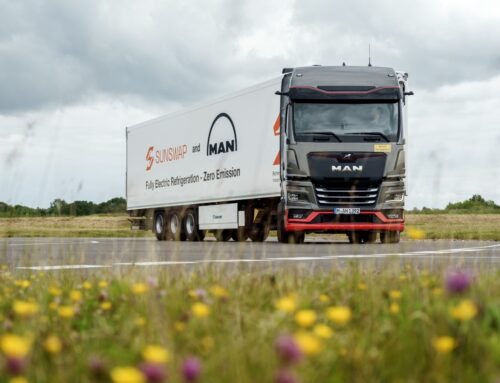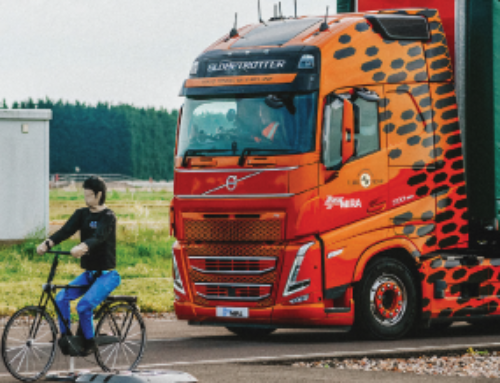Report: fiscal support key to EV uptake
 A new report released last week by trade group Logistics UK has warned that a lack of fiscal support from government is hampering electric vehicle (EV) uptake.
A new report released last week by trade group Logistics UK has warned that a lack of fiscal support from government is hampering electric vehicle (EV) uptake.
The organisation’s Electric Vehicle Report 2023 said that, while fleet operators had strong ambitions around decarbonisation, these were tempered by concern about costs associated with the transition.
“Respondents to the 2023 research reported volatile energy prices and vehicle acquisition costs, and called for more support through tax allowances for capital expenditure on green infrastructure, including increasing power supply capacity at their premises,” said the report.
“Many cited business planning challenges connected to uncertainty around costs and financial support, including sudden changes or withdrawals of grant funding for both vehicle acquisition and chargepoint installation.”
The organisation had called for fairer ways of funding energy supply upgrade, and consistent and straightforward rules for grants, taxation and regulations, in its previous report on the topic.
In this year’s edition, it urged government to “embed certainty for fiscal support” aimed at encouraging fleets to decarbonise, including for grants.
It advocated the amendment of the qualifying criteria for the 100 per cent tax deductible annual investment allowance for capital spending in the year of expenditure that was announced in the Spring Budget to include vehicles acquired via leasing or hiring – as well as calling for clarification around the usage of the allowance for investments in both buildings and equipment, including costs associated with increasing electricity supply at CV premises.
Meanwhile sudden changes to plug-in vehicle and chargepoint grant schemes should be avoided where possible, Logistics UK said, to support better business planning.
According to its research, more than half (55 per cent) of respondents had taken up fiscal support, mostly in the form of grants applied as a discount to new vehicle purchases, such as the plug-in van grant.
“One respondent… was able to use the super deduction allowance to purchase vehicles and chargepoints,” said the organisation.
“Another respondent has received financial support from the Mayor of London for installing charging infrastructure. No operator reported using a scrappage scheme, suggesting that these are limited in availability for commercial vehicles.
“However, Logistics UK members regularly state that grants are a key part of their business planning and sudden changes in the allowances and eligibility criteria is unhelpful.”
The trade group also reiterated recent calls from across industry for progress on charging infrastructure, advocating that a roadmap be designed in collaboration with business, backed with clear guidance and incentives for local authorities.
It added: “An immediate uplift in the number of public chargepoints that can be used by battery electric vans, and recognition of the future needs of battery electric trucks is vital to give the logistics sector the confidence to invest in zero emission at the tailpipe vehicles.”
The organisation also called for: “significantly accelerated rollout of public charging infrastructure that is fully accessible to commercial vehicles, with clear milestones for minimum levels of suitable chargepoint provision across the country; [and] a centralised and standardised public chargepoint system operating to high reliability standards providing live availability updates and information about chargepoint space size and suitability for use by large electric vans now and for electric trucks in the future.”
It additionally urged “fundamental reform of regulatory weight thresholds, not just with alternatively fuelled vans, but across all vehicle classes to avoid regulatory conflict and ensure driver and operator compliance, as well as reforms to training and vehicle inspection regimes for large electric vans up to 4.25 tonnes to take into account that those vans are currently being unfairly caught in costly rules designed for HGVs, as they are heavier than diesel vans,” among other regulatory reforms.
In 2022, said Logistics UK, EVs represented 0.9 per cent of the UK’s van fleet, up from 0.3 per cent in 2019. 62 per cent of business surveyed plan to have decarbonised their van fleets by 2030.
“The logistics sector is fully aware of its responsibilities to decarbonise and is keen to do so,” commented chief executive David Wells.
“However, with respondents reporting wide ranging costs to upgrade their energy supplies to depots – between £100,000 and over £1 million – a lack of meaningful scrappage schemes, acquisition costs on the rise and volatile energy prices, it is an uphill battle that cannot continue without increased support from government.
“Our industry operates on very narrow margins of around one per cent and with significant inflationary pressures, increased wage bills and the rise in total road vehicle operating costs, logistics businesses need supportive fiscal measures to be able to upgrade their fleets and energy supplies without having to pass on increased costs to customers.”
He added: “The lifecycle of a vehicle is carefully worked into any logistics business’ budget, to ensure continuity while keeping costs down. Our members should not be expected simply to write off the cost of any vehicles they operate – which could run to thousands of pounds for every operator: a supportive scrappage scheme should be in place to ensure that logistics businesses can stay on the roads without incurring further, punitive costs.”
The full report is available to download here.










